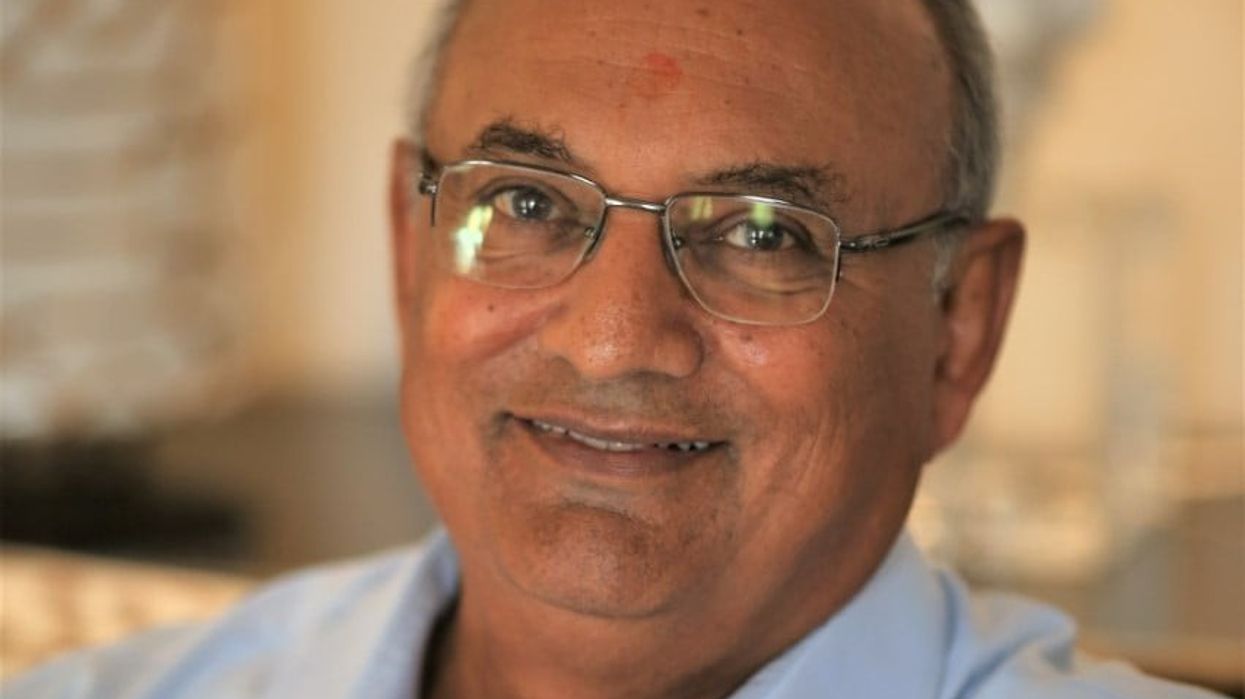A PROMINENT community leader is being mourned after he passed away last month.
Vinod H Patel was a dedicated devotee of the BAPS Swaminarayan Sanstha where he acted as a trustee of the organisation until his retirement. He passed away on September 26 aged 83.
He had a key role in organising BAPS activities in London and other parts of the UK.
Patel was also known for his service to the local community.
Born in Nairobi, Kenya, on January 13, 1938, Patel initially began his career with Barclays Bank in 1957. He joined East African Airways as a reservation agent in 1958 and was transferred to London in 1972 as a reservations manager.
At the time, he had the opportunity to make travel arrangements for the visit of His Holiness Brahmaswarup Yogiji Maharaj of BAPS Swaminarayan Sanstha during his spiritual tour of East Africa and the UK in 1970.
Patel also escorted and personally assisted the former BAPS president, His Holiness Param Pujya Pramukh Swami Maharaj on many flights until the 1980s. Patel left East African Airways in 1989 to start his own travel business, which he ran successfully before retiring in July 2002.
He was the son of Shri Harmanbhai Patel of Ghana, who was one of the main pioneers of the BAPS Satsang in East Africa, dating back to the 1920s.
Patel was initiated in the Swaminarayan tradition (sampradaya) by His Holiness Brahmaswarup Shastriji Maharaj, the founder of BAPS.
After moving to the UK in the early 1970s, Patel was appointed general secretary of BAPS UK by HH Param Pujya Pramukh Swami Maharaj in 1974.
He served in that role for many years and helped to organise numerous events, including the UK-Europe vicharan (tour) of Pramukh Swami Maharaj; the All World Religions Conference at Wembley Conference Centre in 1980; the Cultural Festival of India in 1985; Suvarna Tula Mahotsav in 1985; and London Mandir Mahotsav to mark the opening of the BAPS Shri Swaminarayan Mandir in Neasden, London, the first traditional Hindu temple in Europe.
Following its inauguration in Neasden, HH Param Pujya Pramukh Swami Maharaj appointed Patel as a trustee of BAPS UK, a post in which he served sincerely and diligently until 2017. During this time, his work took him around the UK and parts of continental Europe, where he helped to establish satsang centres and temples to serve local communities.
Patel also had the privilege of receiving many guests at the BAPS temple in Neasden, among them many royals and senior political figures. He was an accomplished orator, and often served as master of ceremonies for important religious assemblies.
Even after his retirement as a trustee in 2017, Patel continued to serve the BAPS satsang fellowship and its devotees until his last days with the blessings of His Holiness Pragat Brahmaswarup Mahant Swami Maharaj.
He leaves behind his wife of 60 years, two sons, four grandchildren and one great-grandchild.












